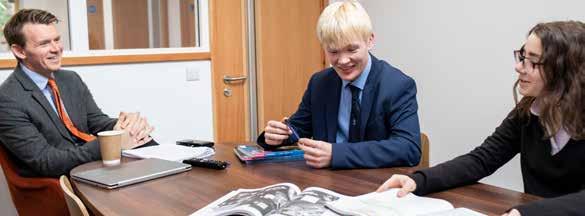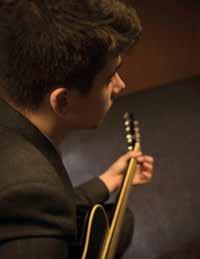
1 minute read
History
2021-2023 Specification: Head of Department: AQA A Level 7042 Mr Paul McCraw
Who should study this course?
Advertisement
Studying history is all about making sense of the past. Have you ever switched on the news and thought, “I wish I knew how that all started?”. Have you ever wanted to find out why Britain and Europe are like they are? Do you think that learning more about people and their shared culture is interesting and important?
If so, studying A Level history is a must. The course will allow you to gain a broad appreciation of British and global history over the past 300 years. You will investigate the rise and fall of the British Empire, a key contemporary issue, and discover the unique past of Russia, from a Tsarist empire to the largest Communist superpower the world has ever seen. Students will also carry out independent research into the history of the United States and complete an NEA (coursework) in Year 12 and Year 13.
Entry requirements
A grade 6 at GCSE History is advisable for success at A Level.
What will I be studying?
Pupils will study three components over the two-year course: • The British Empire, 1857-1914 (Breadth Study) • Revolution and Dictatorship, Russia 1917-1953 (Depth study) • The History of the United States
A common myth held by pupils is that history is ‘too hard’. We disagree, and our results support this. Independent reading and study is required, but this is the case in all A Level subjects. We find that the more pupils find out, the more interesting the subject becomes.
How will I be assessed?
Pupils will be examined by two examinations, each worth 80 marks. There will be a mixture of essay and source-based questions in each paper. Historians should also expect to complete one piece of coursework, of around 4500 words, which will be completed before the exam period.
What next?
After studying A Level History, the vast majority of our pupils go on to university. A high proportion always select arts degrees such as history, English, languages, economics, politics, international relations or more vocational subjects like journalism or law.









